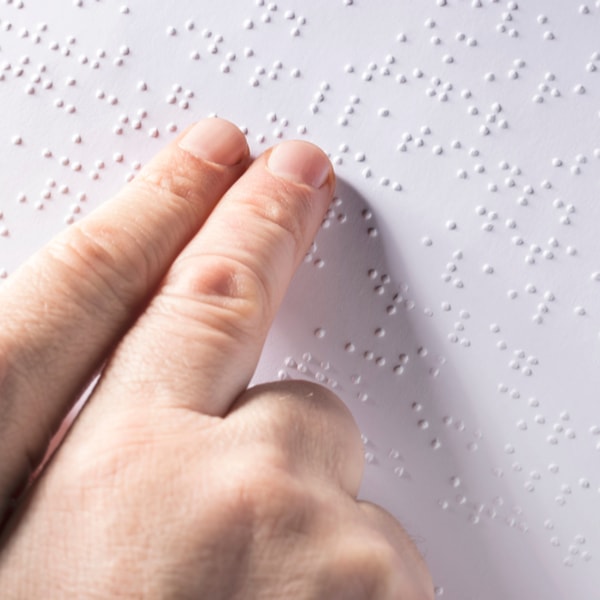Tax Saving Options Beyond Section 80C
Tax saving is always a good feeling, but we have noticed that most of the taxpayers focus only on Section 80 C deductions while doing their tax planning. Tax laws provide us with many tax saving options. But we are unable to take advantage of them simply because we are not even aware of such incentives. This article aims to help you understand other major tax deductions available for the taxpayers, over and above what is already available under Section 80C. Check out how to save income tax under Section 80C deductions in detail here.
Here is how to save taxes beyond Section 80C:
1. Voluntary Contribution into NPS

While contribution into the National Pension Scheme (NPS) was already eligible for deduction under Rs. 1.50 lakh ceiling limit prescribed under 80CCE for payments under Section 80C, 80CCC, and 80CCD, an additional deduction up to Rs. 50,000 over and above this Rs. 1.50 lakh limit is allowed to the taxpayers for amounts invested in NPS under Section 80CCD(1B).
An important point to note here is that there are two types of accounts available under NPS – Tier 1 and Tier 2. Tier 1 accounts carry restrictions for withdrawal. Tier 2 accounts are more or less investment accounts where funds can be withdrawn at any time. Only the investment in Tier-1 Account in NPS is eligible for this additional deduction of Rs. 50,000.
2. Health Insurance Premium and Preventive Health Check-up
An individual or Hindu Undivided Family (HUF) can avail of tax deduction in respect of the payment of premium for health insurance and eligible medical expenses under Section 80D. An individual taxpayer can pay the premium for self, spouse, dependent children and parents, while HUF is eligible for a tax deduction of premium paid for any member of the HUF. Here is a list of the payments eligible for tax deduction under Section 80D:
- Payment of health insurance premium and/or expenses towards preventive health checkup for self, spouse and dependent children up to Rs. 25,000.
- Payment of health insurance premium and/or expenses towards preventive health checkup for parents up to Rs. 25,000 if parents are below the age of 60 years. This limit of Rs. 25,000 is increased to Rs. 50,000 in case the premium has been paid for parents of age 60 years or more.
- Payment of medical expenditure of ‘very senior citizen’ (age 80 years or more) up to Rs. 50,000.
Subject to the overall limit under different heads as discussed above, the ceiling limit for expenses towards preventive health checkup is Rs. 5,000 only.
3. Deduction towards Rent Paid

Salaried employees can avail an exemption in respect of House Rent Allowance (HRA) if they are staying in rented premises. However, such an exemption is not available for self-employed individuals or employees who do not have an HRA component in their salary packages. Section 80GG of the Income Tax Act comes to the rescue of such individuals and allows deduction in respect of rent paid to the extent of lowest of the following 3 amounts:
- Rs. 5,000 per month
- 25% of income
- Rent paid minus 10% of income
For the purpose of these ceiling limits, income excludes long-term capital gains, short-term capital gains u/s 111A and deductions under Section 80C to 80U (except deduction under this section).
4. Interest on Education Loan
As per Section 80E, an individual can avail deduction for interest on education loan for pursuing higher education for self, spouse or children or for a student for whom the taxpayer is a legal guardian. This deduction is available for 8 years starting from the year when repayment of interest commences. While there is no restriction on the maximum amount that can be claimed under this section, deduction can only be claimed in respect of interest amount actually repaid during the year.
5. Donations to Specified Funds/Charitable Trusts

An individual can also avail deductions for donations to specified funds under Section 80G. For the purpose of this section, the extent of deduction is different for the four categories into which such funds/trusts have been categorised:
- 100% of the amount contributed without any limit – This includes Prime Minister Relief Fund, National Defence Fund, National Children Fund, CM Relief Fund, Army Welfare Fund, Swachh Bharat Kosh, Clean Ganga Fund etc.
- 50% of the amount contributed without any limit – includes Jawaharlal Nehru Memorial Fund, Prime Minister Drought Relief Fund, Indira Gandhi Memorial Trust, Rajiv Gandhi Foundation etc.
- 100% of the amount contributed, subject to 10% of the total income – includes specified institutions utilised for the purpose of family planning, or donation by a Company to the Indian Olympic Association or to any other notified association or institution established in India for the development of infrastructure for sports and games in India, or the sponsorship of sports and games in India
- 50% of the amount contributed, subject to 10% of the total income – includes approved charitable trusts etc.
It must be noted that deductions u/s 80G can be claimed only up to Rs. 2,000 if the contribution has been made by cash. However, if such contribution has been made through cheque or digital payment modes, there is no additional ceiling limit for such deduction, except for the ceiling limit as discussed above. Further, contributions in kind such as food material, blankets, clothes, medicines etc. are not eligible for deduction under section 80G.
During the current year, many of us have contributed towards Kerala and Karnataka CM Relief Funds in wake of the devastating floods experienced by these states. You would be eligible for 100% deduction for such contribution if you have the receipt for these donations.
6. Donations to Political Parties
Under Section 80GGC, an individual can also claim a deduction for donation to political parties or electoral trusts to the extent of the amount so contributed. However, no such contribution will be allowed as a deduction if such contribution is in cash.
7. Deduction in respect of Interest on Savings Account

Income Tax Act also provides for deduction for interest on savings account under Section 80TTA. This deduction is available to individuals and HUF to the extent of interest on savings accounts, as considered taxable under Income from Other Sources, upto a maximum of Rs. 10,000. Further, contrary to the popular belief, only interest on savings account is eligible and any interest received on term deposits does not qualify for deduction under this section.
8. Deduction in respect of Interest on Bank/Post Office Accounts and Deposits (only to Senior Citizens)
As a relief to the senior citizens (taxpayers with age 60 years or more), Income Tax Act provides for a deduction on interest on bank and post office deposits under Section 80TTB. This deduction is available for interest on both savings and fixed deposits, as considered taxable under Income from Other Sources, up to a maximum of Rs. 50,000. Also, taxpayers claiming deduction under this section are not eligible for a benefit under Section 80TTA (as discussed in Point 7 above).
9. Deduction in respect of Disability

Resident taxpayers can avail tax deduction u/s 80U if they are certified by the medical authority to be a person with a disability (a person who has at least 40 percent disability, certified by the medical authorities). Such medical condition may include blindness, low vision, hearing impairment, mental retardation etc. Such individuals can avail tax deduction u/s 80U for an amount up to Rs. 75,000 from their gross total income. For individuals with a severe disability (disability 80 percent or more), the deduction is available for an amount of Rs. 1,25,000. Severe disability includes conditions of multiple disabilities, autism and cerebral palsy.
10. Deduction in Medical Expenditure on Self or Dependent Relative
A resident individual or a HUF can avail a deduction upto Rs 40,000 in respect of the medical expenditure on self or dependent relative, incurred towards the treatment of certain specified medical diseases or ailments. For an HUF, such expenses may have been incurred towards these prescribed ailments, for any of the members of the HUF. This limit of Rs. 40,000 is increased to Rs. 1 lakh, if the individual on behalf of whom such expenses are incurred is a senior citizen.
11. Additional Deduction for Interest on Home Loan for first-time buyers

This deduction for an amount not exceeding Rs. 50,000 is available only to the first time home buyers and is over and above the Rs. 2 lakh limit available to the taxpayer in respect of the interest on home loan. If you have exhausted your Rs. 2 lakh limit under Section 24, you can avail the balance amount under Section 80EE. However, other major conditions are required to be satisfied as given below:
- loan must be sanctioned by financial institution between 1st April 2016 and ending 31st March 2017;
- loan sanctioned for acquisition of the residential house property does not exceed thirty-five lakh rupees;
- value of residential house property does not exceed fifty lakh rupees;
- the assessee does not own any residential house property on the date of sanction of loan.
With the tax saving options mentioned above, we hope that you will be able to plan your income tax e in a much better manner. Take an informed decision and save taxes.
It was nice